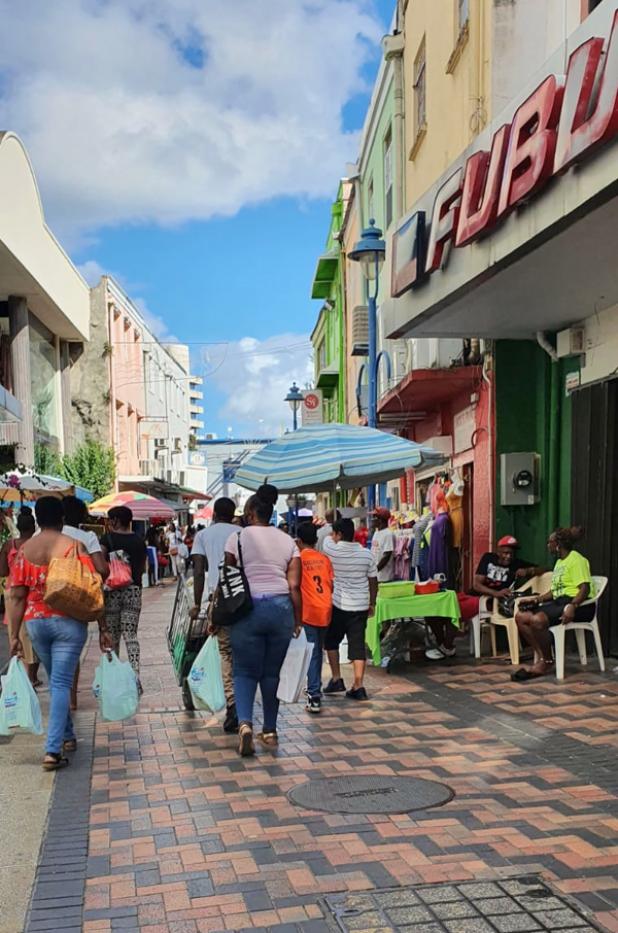
Senior Economist at the Central Bank of Barbados, Carlon Walkes.

There has been a slowdown in household debt and spending so far in 2020 and this has implications for the overall economy.
BUSINESS MONDAY: ‘HOUSEHOLD DEBT DECLINING’
AS speculation mounts about whether Barbadians are likely to increase their spending for Christmas, there is one hard fact that is very much in play.
It is that there has been a slowdown in household debt and spending so far in 2020 and this has implications for the overall economy.
Reports of the slowdown are coming from Senior Economist at the Central Bank of Barbados, Carlon Walkes, who has attributed it to the impact of COVID-19 and the subsequent job losses which have occurred across economic sectors in Barbados.
In a recent discussion, Walkes reasoned that if households are faced with reduced incomes due to a shorter work week or through unemployment, that can influence people’s plans to spend on upgrading homes or on other things including education of their children.
“With this COVID-19, we have noticed a dampening of the appetite for debt by households. It has been declining since the beginning of this year and up to July, it is still declining and that is something we expect to see for the remainder of this year,” the Economist remarked in a discussion with Novaline Brewster, the bank’s Chief of Corporate Communications.
Drawing from research undertaken in Barbados, Walkes said that over the course of the last 20 years, household debt in Barbados increased by about 121 per cent or $6.1 billion up to March this year.
Noting that this appears to be high, the economist pointed out however that this is over a 20-year period and that the increase is not that rapid. The quarterly growth rate between March 2012 and March 2020 was about 0.55, which according to him is less than one per cent each quarter.
Explaining the significance of this, Walkes said that the household sector is responsible for the majority of deposits at the deposit-taking institutions and for the majority of credit.
Due to this exposure of these institutions to households, it is important that we understand how the decisions and the economic circumstances that face households influence the financial sector and the macroeconomic indicators of the economy, he said.
Household debt entails money households owe to the domestic lending financial institutions, other entities and to non-residents. “You are looking at the debt individuals owe to local financial institutions, as well as debt owed to other resident financial entities and debt to non-residents,” he explained.
“You are looking at debt of individuals as a collective institutional unit,” Walkes pointed out, while noting that the debt covers loans, mortgages, and credit card transactions. The basic premise of a credit card is that an individual cardholder is not taking the funds from his/her account, but rather using the banks’ funds.
